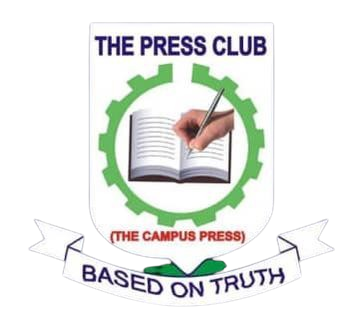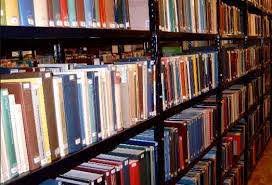It’s time for reading. It’s the period of exploration. It’s the season of knowledge. It’s the era where knowledge is the pathfinder to prosperity. The world operates on the wheel of information – the more you know, the more power that you’ll have to control the social, economic and political realm of the society. A person that doesn’t read well in this jet age would not move with the world. And, where can one dig the gold – knowledge?
Library is a repertoire of knowledge. Bygone days, the library was occupied by people who were ravenous readers. People go to the library to get historical records that are reliable. They also discover that information in libraries cannot be easily manipulated. Library houses bulks of books about the evolution of man, civilization, science, art and culture.
Then, students of knowledge know the essentials of the library so much that they spend most of their time searching the shelves for new books in the library. People can also borrow books with a penny and return after reading them.
Communities also invest in community libraries because it makes the society healthier. The young ones are preoccupied in the library that they have no time to orchestrate immorality in the society. It also reduces the unemployment rate as librarians make a living by attending to readers. In other words, it boosts local economies. Librarians also offer free educational resources to people by guiding them in the selection of books that are most useful to them.
The library environment is conducive and good for reading. It has no side distractions, making readers focus.
These days, only a few visit the library. Students no longer find the library a resourceful place helpful to their studies. They depend only on handouts by lecturers even when references on the back page show that the content of a book have been extracted from another source.
However, should one say that a student that does not visit the library – a goldmine of knowledge – has no wealth of knowledge ? It is definitely arguable as technology has made libraries accessible even without stepping into a physical building housing a bulk of books.
Technology has changed many things. How we gather information and the way it’s disseminated has been made dynamic by technology. Thus, the advantages of libraries are fading away as technology has now replaced all its functions.
Books are easily accessible from our homes. Ebooks are portable. Students now have the choice of either going to the library or staying at home and simply downloading books on the internet. Ebooks can be downloaded and received almost instantaneously. When Ebooks are sold, they often come with bonuses. You can also update and share Ebooks with friends and colleagues. Some reader apps allow for read-aloud features.
Moreover, books usually occupy space. For example, to have a mini-library, one has to create some space. Meanwhile, a mobile phone can save billions of books just on one device. Books can be in CD form, audio and electronic form (Ebook).
Also, the books in some libraries are out-of-date. Since the books are in hardcopies, they are not easy to update and match with the new trend. For instance, the Darwin theory on the evolution of man has been improved upon year after; and a library may not be able to include the new discoveries to the shelf; thereby, lacking in that aspect.
It is important to note that digitization of libraries is evolving. However, it is not so common. Also, unlike the traditional library, readers have to pay more to have access to such a facility. Besides, when you are in a digital library, you read from a screen (computer), this, you can adequately access at home. So, why stress out?
What is disturbing is: schools usually don’t create enough awareness and orientation to ensure students use the library. Also, relatable books are hardly to come by since books that are from the 90’s are still the ones stocked in the library. Additionally, the library building is underfunded, thus, not in good structure to meet up to standard.
Another reason the students see going to the library a waste of precious time is that they have no time. Classes are slated from 7 am till 5pm, and with take-home assignments. Students spend most of their time attending lectures, doing assignments among other things. If weekends are to be spared, one doubts if the library is open.
The library has no current researches. For instance, it’s surprising to know that projects of students are stockpiled somewhere roaming on the floor instead of these fresh researches be stored in the library. The problem of expansion is also affecting the efficiency of library.
Hardly will you see a tertiary institution student with no mobile device. And all the books that a library may contain in various disciplines, however ancient the books are, can be downloaded on phones without taking much time or spending much money. Some are even for free. What to worry about is how students are maximizing it?
From the foregoing, unless library education is incorporated in the students curriculum, the need to visit the library may soon completely fade away.
Library should also make accessing easy and allow for borrowing of books home by registered students.
Quadri Yahya is an ND2 student of the department of Mass Communication





